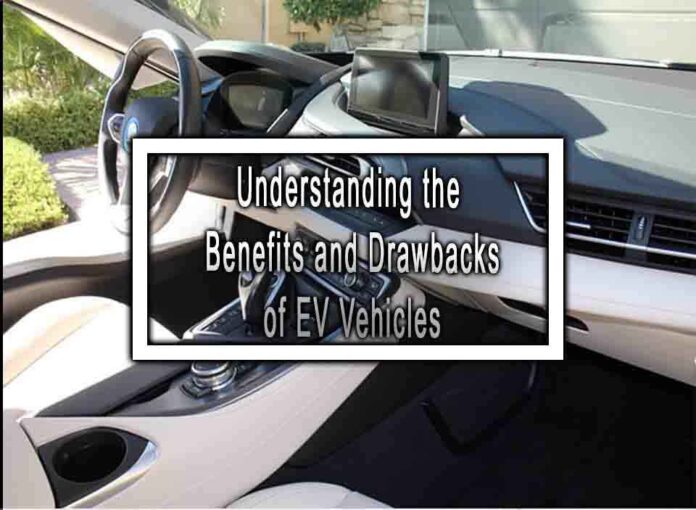Electric vehicles (EVs) have gained significant attention as a more sustainable and environmentally friendly alternative to traditional gasoline-powered vehicles. However, like any technology, EVs come with both benefits and drawbacks. Here’s an overview of the advantages and disadvantages of electric vehicles:
Benefits of EV Vehicles:
Environmental Benefits:
- Reduced Emissions: EVs produce zero tailpipe emissions, helping to decrease air pollution and greenhouse gas emissions, which contribute to climate change.
- Energy Efficiency: EVs are generally more energy-efficient than internal combustion engine vehicles, leading to reduced overall energy consumption.
Lower Operating Costs:
- Reduced Fuel Costs: Charging an EV is often cheaper than refueling a gasoline vehicle, resulting in lower fueling costs over the long term.
- Fewer Maintenance Costs: EVs have fewer moving parts and simpler engines, leading to lower maintenance and repair expenses.
Quiet Operation:
- Electric motors produce less noise compared to internal combustion engines, resulting in quieter and more comfortable driving experiences.
Instant Torque and Smooth Acceleration:
- Electric motors provide instant torque, delivering smooth and rapid acceleration, which can enhance driving enjoyment.
Government Incentives:
- Many governments offer incentives, tax credits, and rebates for purchasing EVs to encourage adoption and support environmental goals.
Reduced Dependence on Fossil Fuels:
- EVs contribute to reducing reliance on fossil fuels, which are finite resources subject to price fluctuations and geopolitical concerns.
Drawbacks of EV Vehicles:
Limited Driving Range:
- Many EVs have a limited driving range compared to gasoline vehicles, requiring more frequent charging or longer planning for road trips.
Charging Infrastructure:
- While charging networks are expanding, the availability and accessibility of charging stations can still be a concern, especially in certain regions.
Longer Refueling Time:
- Charging an EV takes longer compared to refueling a gasoline vehicle, especially when using standard charging stations. Fast-charging options are available but might be limited.
Higher Upfront Costs:
- The initial purchase price of EVs can be higher than that of gasoline vehicles due to the cost of battery technology. However, this gap is gradually decreasing.
Battery Degradation:
- Over time, EV batteries can experience degradation, reducing their capacity and overall range. Battery replacement can be expensive.
Limited Model Variety:
- While the variety of EV models is increasing, the options might still be limited compared to the wide range of traditional vehicles available.
Dependence on Electricity Grid:
- EVs rely on the availability of an electricity supply. Power outages or grid disruptions could affect charging options.

Carbon Footprint of Electricity Generation:
- The environmental benefits of EVs depend on the source of electricity used for charging. If the electricity comes from fossil fuels, the overall carbon footprint might not be significantly lower.
Charging at Home:
If you have a garage or dedicated parking space, assess your ability to install a Level 2 home charging station. This can provide convenience and cost savings. It’s also worth exploring available EV Tax Incentives and Rebates, which can help offset the initial installation expenses. Many federal, state, and local programs offer financial support for EV charger installations, making it more affordable to upgrade your home for electric driving.
Environmental Impact:
Evaluate the environmental benefits of driving an EV. Electric cars produce zero tailpipe emissions and can contribute to reducing your carbon footprint.
It’s important to weigh these benefits and drawbacks based on your specific needs, driving habits, and access to charging infrastructure. As technology evolves and charging networks expand, many of the current drawbacks of EVs are expected to decrease, making electric vehicles an increasingly viable and sustainable transportation option.











